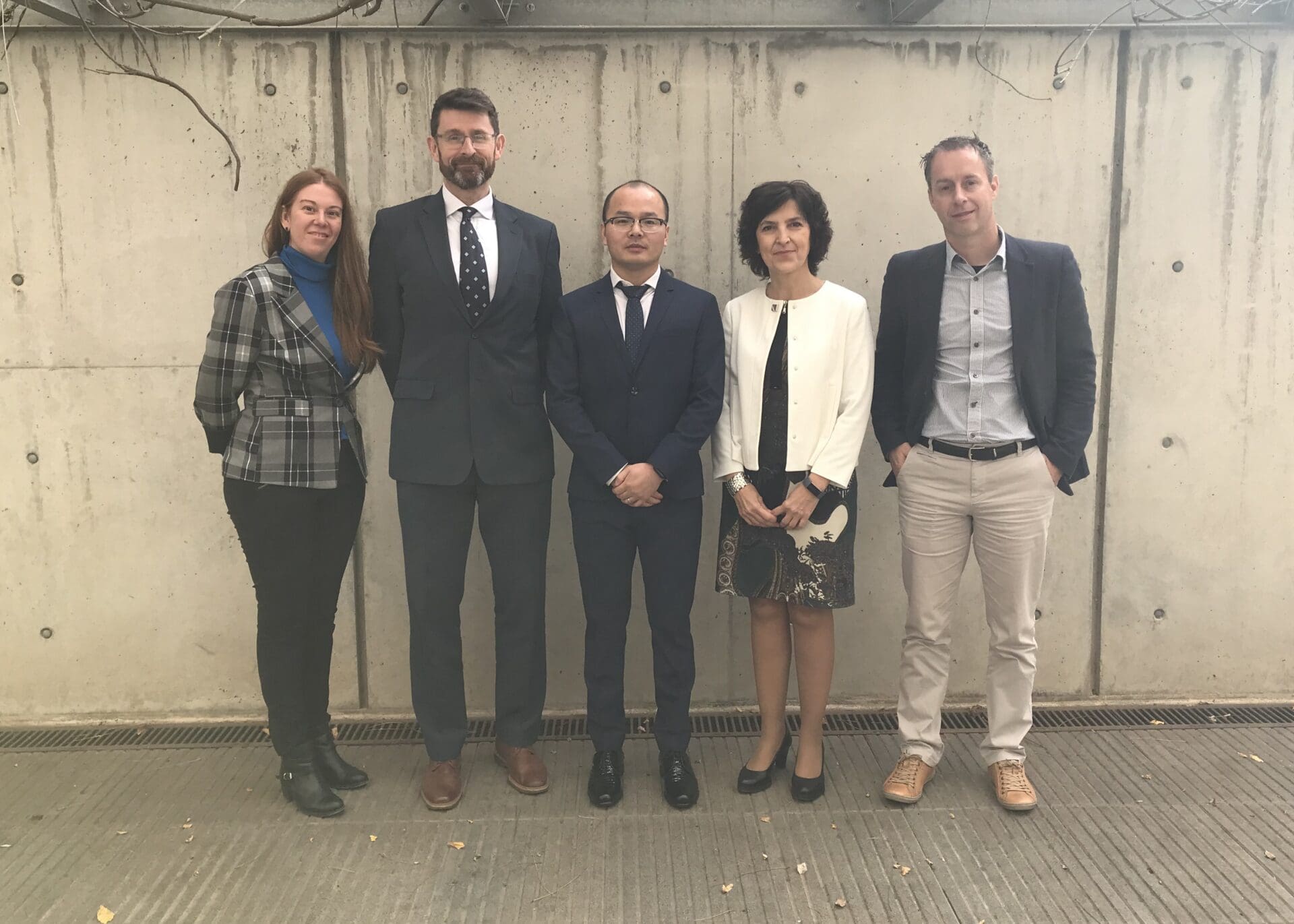It’s Cai, Dr. Aijie Cai!
Aijie Cai, PhD student under the supervision of Prof. Arjan W. Kleij (ICIQ), has defended his PhD Thesis entitled “Pd-catalyzed Allylic Substitution for the Construction of Quaternary Stereocenters” (assigned to the Department of Analytical & Organic Chemistry of the Universitat Rovira i Virgili) publicly on December 12th at the ICIQ Auditorium.
The members of the examining committee were: Prof. Ana Carmen Albéniz (Universidad de Valladolid), Dr. Mónica H. Pérez-Temprano (ICIQ), Prof. Joseph Sweeney (University of Lancaster).
Dr. Cai was born in Chengde, a beautiful city in Hebei province, China. He studied a master in chemistry at Tianjin University. Fascinated by organometallic chemistry and asymmetric catalysis, he joined Prof. Arjan W. Kleij’s group at ICIQ for his PhD in 2016. He likes playing badminton, swimming and spending time with his family and friends.
Why did you become a scientist?
The first time I learnt about chemistry, I thought it was amazing. You can take known compounds and put them together with a catalyst to obtain new and unknown ones. Since I already liked it and I got high scores in organic chemistry in high school I decided to become a scientist. My chemistry philosophy is similar to Forrest Gump’s matra: “chemical reactions are like a box of chocolate, you never know what you are gonna get,” and this will in turn guide you to new findings.
From the lessons learnt at ICIQ (mentoring, training received), which one do you value the most?
I learnt that perseverance and circumspection are necessary to keep on going. In the process of completing a project, you will face difficulties, so you need perseverance to overcome these kinds of challenges. Meanwhile, you need circumspection to find the reason and the efficient method to solve these types of problems.
What will you miss the most from ICIQ?
I will miss the people from ICIQ. Besides chemistry, I have learnt a lot from talking with my supervisor and lab colleagues. I really appreciate all their help and support throughout the last four years and I think, this helped me to be a better researcher and, in the future, to have my own research group. I will never forget how my labmates taught me to speak Spanish. It was super difficult for me to control my pronunciation, so they patiently repeated the same stuff over and over. In the end, I overcame the difficulties and learnt a bit. I will also miss Tarragona and its Mediterranean cuisine. And the weather too! It’s always cloudy and windy back home in China.
What advice do you have for someone who’s starting their PhD now?
To a new PhD student, I would say: have a clear idea of what your project will focus on because at the begging of your PhD, you’ll probably encounter many difficulties. You need to be prepared for that. On top of working hard, time management proved to be very important, sometimes I needed to do a lot of reactions and I spent a lot of time in the lab but made little progress. If you are not mentally prepared, you will be super frustrated.
Where are you going next? What will you do there?
I’m going to the United States. I will continue my research working as a postdoctoral fellow at Miami University, in Ohio.
If you were a piece of lab equipment, what would you be?
I would like to be a purification column. You can purify compounds with it and, based on this, you can analyse their structure and properties.
Related news

Let's create a brighter future
Join our team to work with renowned researchers, tackle groundbreaking
projects and contribute to meaningful scientific advancements








 20-12-2024
20-12-2024 


















